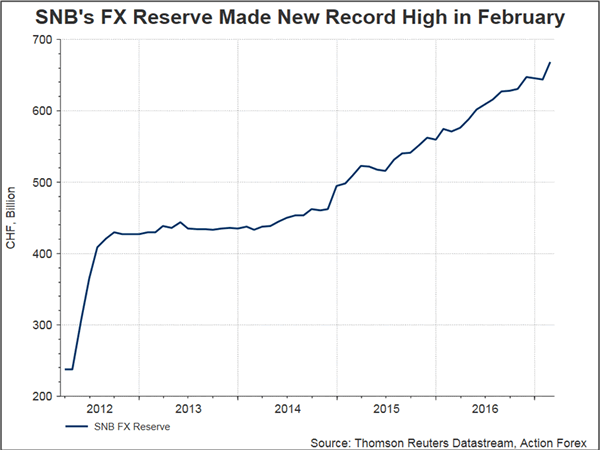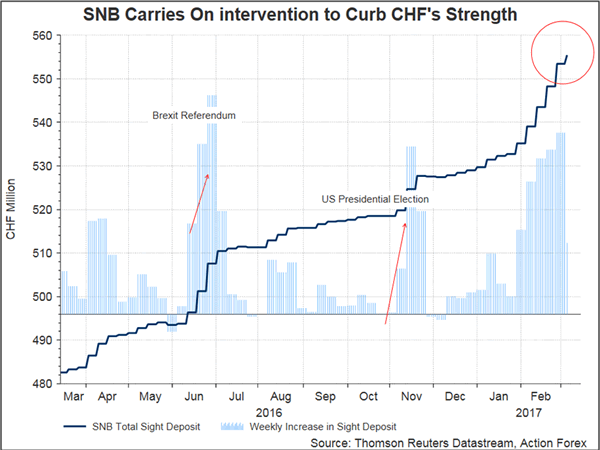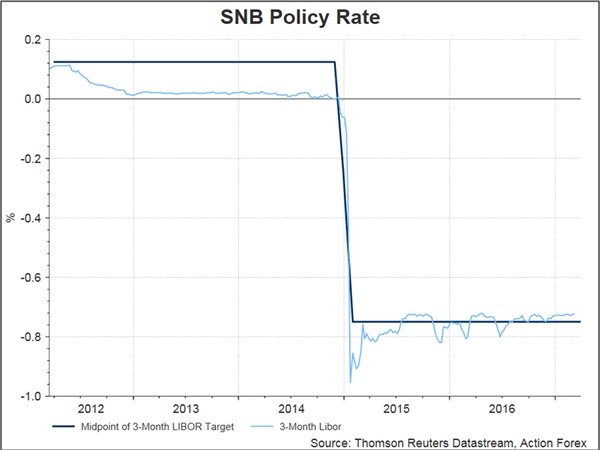As widely anticipated, SNB left the sight deposit rate unchanged at -0.75%. The target range for the three-month Libor stayed at between -1.25% and -0.25%. Reiterating the excessive strength in Swiss franc, the central bank pledged that it would "remain active in the foreign exchange market as necessary, while taking the overall currency situation into consideration. Policymakers acknowledged ongoing improvements in the global economy but noted that it is "is still subject to considerable risks", among which the key is political uncertainty with "respect to the future course of economic policy in the US, upcoming elections in Europe, and the complex exit negotiations between the UK and the EU".
On the economic outlook, SNB forecasts CPI to increase +0.3% this year, up from +0.1% projected in December, before rising to +0.4% (December +0.5%) and +1.1% in 2018 and 2019, respectively. the upward revision in this year’s inflation was mainly driven by the rally in oil prices. The central bank forecast GDP to expand +1.5% in 2017, although there is "considerable uncertainty emanating from international risks". Regarding the weaker-than-expected GDP growth in 4Q17, SNB noted that "a more extensive analysis of the available economic indicators points to an ongoing moderate recovery in the final months of the year; developments on the labor market support this view".
Earlier this month, Governor Thomas Jordan cautioned that, citing Trump’s trade policy, Brexit and general elections in Germany and France, "increased political uncertainty" is "always delicate for us because Switzerland is increasingly viewed as a safe haven". SNB’s FX reserves rose to a record high of CHF 668B. Total balance sheet is over 115% of GDP. This signals that the central bank intervened to suppress franc’s appreciation by selling it for foreign currencies.



